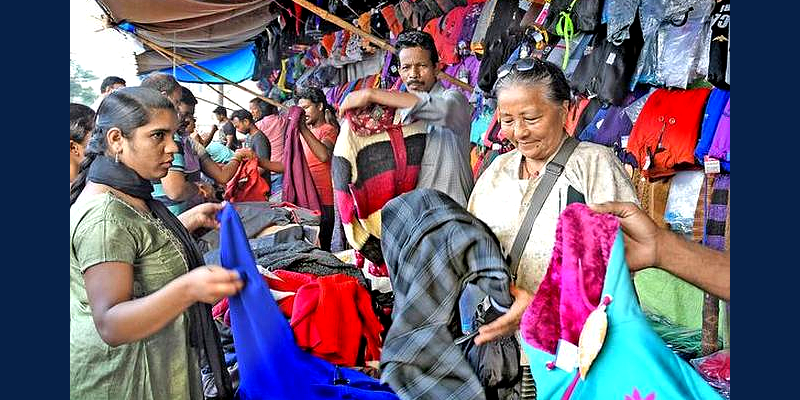A large number of Tibetan refugees in India depend on the seasonal sales of warm clothing in Indian cities as a source of their livelihoods. This year Tibetans are hope to sell the leftover stocks remaining from the sales impact incurred due to demonetization at the end of the year 2016 so that they do go into losses.
With the arrival of cold season, Indian city dwellers across the country are now very much familiar to the temporary Tibetan markets being set up in their locality. Tibetan refugees dwelling in remote settlement areas in Karnataka, Arunachal Pradesh etc., flock towards cities in Winter bring with them a range of woolen and warm cloths mostly brought from Ludhiana and New Delhi.
Over the past many years, Tibetan winter business markets in such towns have been popular providing cheaper clothings that are as stylish and good as those available in premium showrooms at much higher rates. However, many of those Tibetan markets had leftover stocks from last year due to demonetization and they are hoping to be able to sell them this year.
“Every year, we get products (both hand-knitted and sourced from parts of Ludhiana and Nepal) worth ₹9 lakh to ₹12 lakh for the seasonal business. Most of them used to get exhausted in three months, before we set off our journey to Odisha. But due to demonetization, about ₹2 lakh worth winter wear was left untouched,” according to a Tibetan winter business saying as quoted by The Hindu.
Though it was reported that the sale were slow at the beginning this year, with the dipping temperature, it is believed that sales have picked up now. Most of the Tibetan winter business have begun from the onset of October-November and will last till the end of January, packing just before the Tibetan New Year, Losar which is coming up in the middle of February this year.

